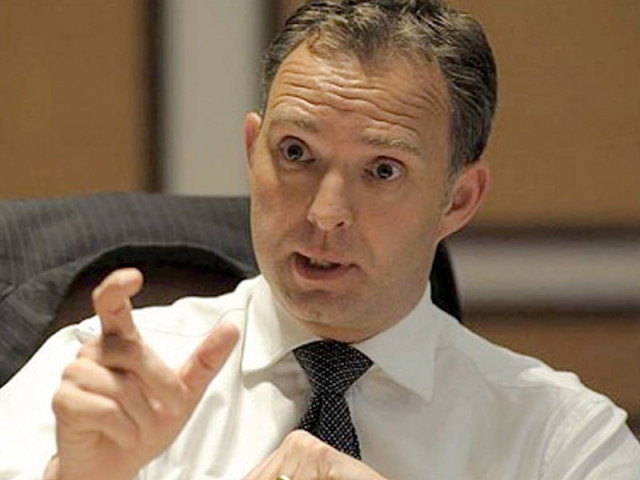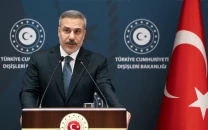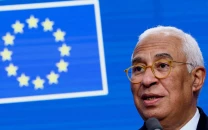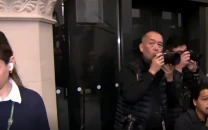UK doesn’t want Pakistan to attack Haqqanis: Mark Sedwill
Envoy urges Islamabad to just reduce their threat and bring them to negotiation table with NATO.

Urging Pakistan to use its influence to get the Haqqani network to come to the negotiation table with Nato and enter a reconciliation process, British Special Representative for Afghanistan and Pakistan Mark Sedwill said, “We don’t want Pakistan to take military action against the Haqqani group. We understand the challenges it faces on that front, all we want from Pakistan is to do its utmost to minimise the threat.”
Afghan President Hamid Karzai has already made that offer to the Haqqani network and it is in Pakistan’s strategic interest to play its role, Sedwill said while speaking to The Express Tribune, adding that Pakistan is absolutely clear that a stable Afghanistan is in the country’s strategic interest.
Sedwill, who has held discussions on security issues with Prime Minister Yousaf Raza Gilani, Chief of Army Staff Gen Ashfaq Parvez Kayani and Inter-Services Intelligence (ISI) chief Ahmed Shuja Pasha, said the outcome of the discussions with his Pakistani counterparts was “encouraging”.
Appreciating Pakistan’s role as the frontline state in terms of loss of human lives, and with Islamabad’s already debilitating economy on one hand and drone attacks on the other, Sedwill said it is in Pakistan’s interest to realise that insurgency in the country would end only once there is enduring stability in Afghanistan.
Regarding Pakistan’s apprehensions about the political vacuum that might leave Afghanistan prone to another takeover by radical and criminal groups, he said, “We don’t want to see that part of history repeated.”
Najibullah’s regime survived three years after the Soviet withdrawal because of Moscow’s continued economic support, Sedwill said, adding that was why Nato forces wouldn’t withdraw abruptly and would ensure continued funding to maintain economic and military sustainability.
Foreign forces in Afghanistan will “cease combat role by 2014” and the drawdown process will be completed by the mid-20s. During this period the dialogue process with neighbours will continue.
Nato, US and Britain will sign long-term partnerships with the Afghans and Afghanistan’s neighbours to demonstrate their willingness to underwrite enduring stability in the region, he said. Training of Afghan officer corps and funding of the Afghan national army is one of those partnerships.
Bringing about political reforms in Afghanistan as it approaches elections in 2014 is another example of the partnership for peace effort, Sedwill said. Political reforms will make the state more capable of absorbing the insurgency through a reconciliation effort by offering insurgents political motivation to enter politics within the constitution through a reconciliation process.
Nato wants to achieve a situation where Afghanistan is on a stabilising path and will underwrite that with a commitment at the Bonn Summit and then in Nato’s Chicago Summit in May.
Published in The Express Tribune, November 25th, 2011.



















COMMENTS
Comments are moderated and generally will be posted if they are on-topic and not abusive.
For more information, please see our Comments FAQ